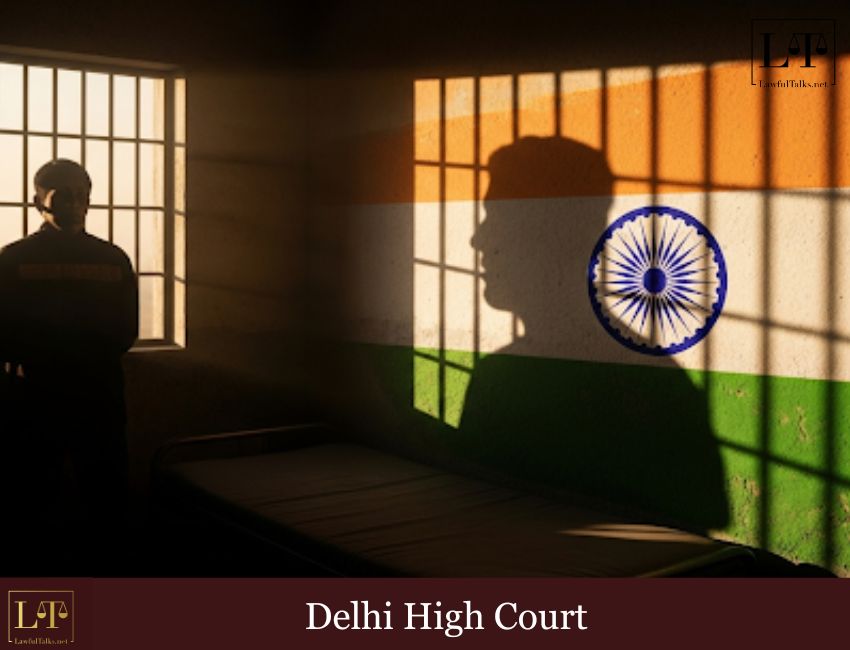Allahabad HC Sets Aside Afzal Ansari's Conviction, Allows Him to Continue as MP

The Delhi High Court recently delivered a ruling on the balance between individual liberty and national security. The case concerned a life convict seeking premature release under the 2004 remission policy. At the core of the Court’s reasoning was the question of whether the duration of imprisonment and eligibility for remission could outweigh the seriousness of involvement in a terrorist conspiracy affecting the nation’s sovereignty.

Facts:
The petitioner, convicted in 2002 by the designated TADA Court, was found guilty of conspiring with members of the proscribed terrorist organisation Harkat-ul-Ansar to kidnap four foreign nationals in 1994. The conspiracy aimed to coerce the Government of India into releasing jailed militants. Initially sentenced to death, his punishment was commuted by the Supreme Court in 2003 to life imprisonment with a mandatory period of 20 years without remission.
Upon completion of over 28 years in custody (including more than 30 years with remission), the petitioner sought premature release under the 2004 remission policy of the Government of NCT of Delhi. The Sentence Review Board (SRB), however, rejected his plea in June 2023, citing the gravity of the offence, unsatisfactory jail conduct, and persisting national security concerns.
Issues
-
Whether the petitioner’s completion of more than 25 years in custody created an enforceable right to release under the 2004 remission policy.
-
Whether reliance solely on the gravity of the original offence, despite the petitioner’s long incarceration, was permissible in law.
-
To what extent societal interest, national security, and public confidence can override an individual’s plea for liberty.
Contentions
Petitioner’s Arguments
The remission policy of 2004 classified convicts into categories where the maximum period of incarceration, including remission, ordinarily could not exceed 25 years. Having undergone more than 26 years in custody, the petitioner claimed entitlement to release.
-
It was argued that the SRB erred by re-emphasising the gravity of the offence committed decades ago while ignoring subsequent reformation and satisfactory conduct in recent years.
-
Reliance was placed on judicial precedents such as Joseph v. State of Kerala, to argue that continued incarceration beyond the statutory framework negates the rehabilitative purpose of remission and violates Article 14 of the Constitution.
State’s Arguments
-
The State maintained that the 2004 policy does not confer an absolute right to release; it only entitles a convict to consideration. Release remains conditional upon factors including the nature of the crime, jail conduct, and societal impact.
-
The petitioner’s criminal record reflected multiple punishments during incarceration, and his reformative conduct was inconsistent.
-
The police authorities raised strong objections citing his association with Omar Sheikh (later released during the IC-814 hijacking) and the enduring risks to national security if he were released.
The Court's Reasoning :
Justice Sanjeev Narula upheld the rejection of the petitioner’s plea by the SRB. The Court clarified that the remission policy does not guarantee release upon completion of 25 years; it merely creates eligibility for consideration.
The Court observed:
“In view of the foregoing discussion, this Court is of the opinion that, despite the long incarceration undergone by the Petitioner, the nature of the offence, its broader societal impact, and the legitimate concerns of national security remain overriding considerations.”
It further stressed that:
“The factor of 'welfare of society', expressly recognised in the remission policy, is of wide amplitude and encompasses considerations such as the nature of the offence, its potential impact on public order and national security, and the confidence of the community at large.”
The court emphasized that in cases involving terrorism or offences against the State, public safety and national security outweigh an individual convict’s reformative claims. Though prolonged incarceration is relevant, it cannot override the gravity of crimes aimed at destabilising the State. Here, the abduction of foreign nationals posed a threat to India’s sovereignty and global image, making societal and national security concerns paramount.
In its ruling the bench observed,
“In view of the foregoing discussion, this Court is of the opinion that, despite the long incarceration undergone by the Petitioner, the nature of the offence, its broader societal impact, and the legitimate concerns of national security remain overriding considerations. The factor of ‘welfare of society’, expressly recognised in the remission policy, is of wide amplitude and encompasses considerations such as the nature of the offence, its potential impact on public order and national security, and the confidence of the community at large. Accordingly, no infirmity is found in the SRB’s rejection of the Petitioner’s case.
Asserting that the matter stands dismissed the bench nevertheless added,“It is, however, clarified that it shall remain open to the competent authorities to place the Petitioner’s case before the Sentence Review Board for future consideration in accordance with law. Accordingly, the writ petition was dismissed, though the authorities were left free to reconsider the case in the future.”
CASE TITLE: NASIR MOHD SODOZEY @ AFTAAB AHMED @ ABDULLAH v. STATE GOVT OF NCT OF DELHI

Het Dedhia
3rd Year Law Student from SVKM's Pravin Gandhi College of Law
Latest Posts
Categories
- International News 19 Posts
- Supreme Court 347 Posts
- High Courts 361 Posts


















































































































































































































































































































































































































































































































































































































































































































































